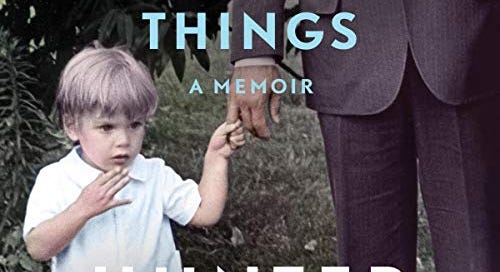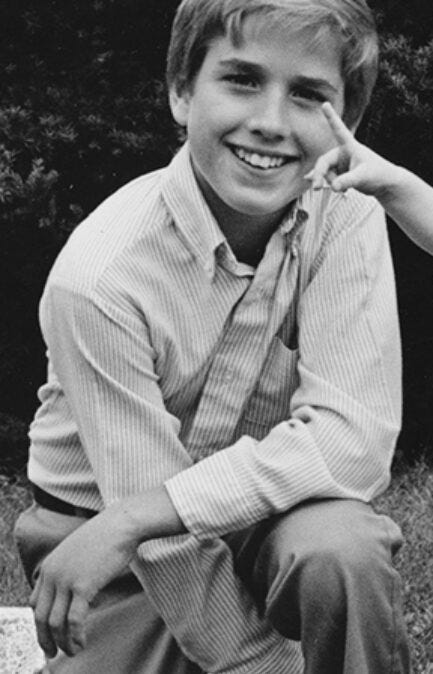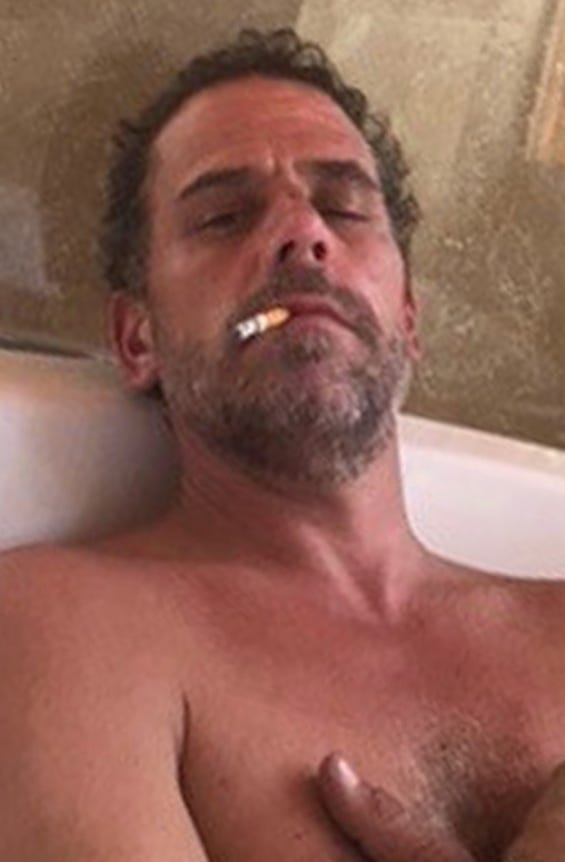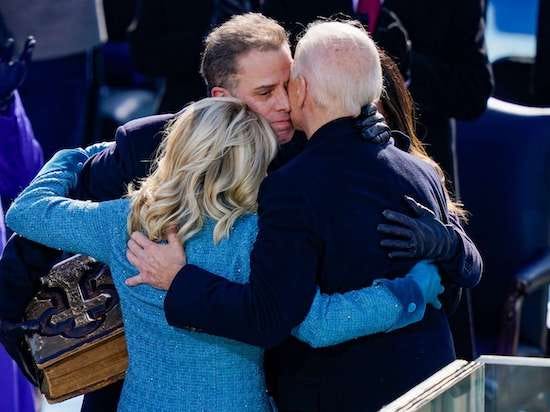Hunter Biden’s autobiography Beautiful Things is a love story. The story of a young boy who never got out of the shadow of his beloved brother, and never came to terms with his death.
Make no mistake: Beau Biden was the golden child. Right from the start, Hunter was the “other Biden.” The child who believed, deep down, that he shouldn’t have survived the car wreck that killed his mother and baby sister.
That thought didn’t occur to Hunter at the time, obviously. But the stage was well and truly set by the crash.
Though two at the time, Hunter claims to remember lying next to his brother’s hospital bed, listening to Beau repeating “I love you “ over and over as he struggled with his injuries.
Beau (above) recovered to become Hunter’s everything. “My soul mate, my best friend, my polestar since those virtually first conscious moments of my life.”
After the fatal accident, Joe Biden continued his Senate race, leaving his motherless boys in their aunt and uncle’s daily care.
Hunter’s retelling makes scant mention of this early parenting, opting instead for anecdotes about his happiest days with Beau.
By the time Joe Biden remarried, Hunter’s bond with his brother was absolute, exclusive, all-consuming.
Beautiful Things is a testimony to Hunter’s abject inability to process Beau’s death of brain cancer at 46. The first two chapters focus on Beau’s life of public service, his slow-motion death, and his magisterial public funeral.
It’s only in Chapter Three, Growing Up Biden, that Hunter (above) finally begins his story. Or does he?
“My father believed Beau could one day be president,” the chapter opens, “and he’d get there with my help.”
What does that tell you?
While Hunter’s genetics predisposed him to addiction, his fractured family dynamics doomed him from the start. His failure to live up to his brother’s standards came to rule – and ruin – Hunter’s life.
Despite years of therapy, Hunter can’t see it. Can’t go there.
I want to make it clear. I don’t see that tragic moment [the car crash] as necessarily resulting in behaviors that lent themselves to addiction. That would be a cop out.
But I do have a better understanding of why I feel the way I do sometimes, the unease I’ve experienced at incongruous moments especially around other people…
It was a lonely place to be as a child, and it’s a lonely place to be now. That kind of insecurity is almost universal among those with real addiction issues – a feeling of being alone in a crowd.
Anyone who’s experienced crippling self-doubt and/or the ravages of addiction – either by extension or up-close-and-personal – can’t help but empathize with Hunter’s alienation.
Seen in that context, Hunter’s descent into Porsche-driving, hotel-trashing, rehab-hopping depravity and degradation is entirely understandable.
That’s not to say Hunter comes off as an entirely sympathetic character.
Beautiful Things dances around or races past all the “tricky” topics, such as Hunter’s insatiable appetite for prostitutes, documented in his abandoned laptop. Videos he disingenuously describes as “manufactured or real.”
In the Chapter Burisma, Hunter dismisses the controversy over his position on the Ukrainian gas company’s Board as “epic banality.”
And yet he admits he was paid large sums of money to do basically nothing: twice-yearly rubber stamp Board meetings in exotic locales. Money that fueled his crack habit.
MIA from Hunter’s “tell all”: his tax evasion, illegal firearm purchase and trips aboard Air Force Two, hawking the Biden brand to Chinese government-controlled businesses and post-Communist oligarchs.
For all its insight into scoring, cooking and smoking crack for days, weeks, months and years, Beautiful Things is a de minimus mea culpa. Hunter Biden is incapable, unwilling or prohibited from taking responsibility for the full scope of his actions.
What of Joe? Hunter’s father barely gets a walk-on part. His appearances are restricted to hugs, telephonic expressions of support and a single failed intervention (concluding with a hug).
Otherwise, our current president is a distant figure in his son’s life.
What could Joe Biden have done to “save” his son? We’ll never know. Nor will we ever know what Hunter Biden could have done with his life if it hadn’t been dominated by survivor’s guilt.
When Hunter starts an affair with Beau’s widow, Hunter’s life ascends to the level of Greek tragedy. All doubt is removed: more than anything, Hunter Biden wanted to be Beau Biden.
Beau Biden the successful student, businessman, Bronze Star Army Major, politician, prosecutor, Attorney General, husband, father and son. A chain of accomplishments that kept Hunter – keeps Hunter? – in Hell.
Beautiful Things is a cautionary tale of sinister sibling symbiosis. But little more. Setting aside Hunter Biden’s limited humility and carefully-couched honesty, his autobiography lacks one thing above all: a sense of beauty.
The author’s command of the language is admirable, but the only “beautiful thing” described in the book with genuine emotion is… Beau Biden.
The book ends with a message from Hunter to Beau: “God, I miss you. I love you. I love you. I love you.” Better read as “I’m sorry. I’m sorry. I’m sorry.”










Part of me believes the left behind laptop was a warning and a cry for help.